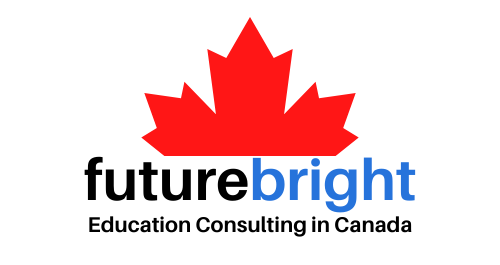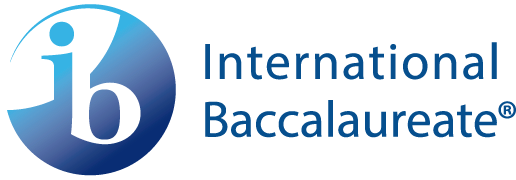What Is IB?
The International Baccalaureate (IB) Program is a globally recognized school curriculum. Offered in schools around the world, it provides students an internationally recognized qualification upon completion.
The IB program covers a broad range of subjects, fostering lifelong learning through critical thinking, problem-solving, and collaboration skills. Its assessment employs a blend of coursework, projects, and exams, ensuring comprehensive evaluation. The IB diploma’s global recognition by universities underscores its academic rigor and holistic education approach, equipping students for higher education success.
The International Baccalaureate is different from Advanced Placement (AP). Whereas the AP curriculum focuses on allowing high school students to study college or university-level coursework, IB is more holistic, focusing on critical thinking, global cultural awareness, and a broad interdisciplinary study. IB certifications are internationally accepted, and colleges & universities consider International Baccalaureate education a demonstration of a student’s character.
The Different Types of IB Programmes Available
The IB offers several programs:
- IB Diploma Programme (IBDP): For ages 16-19, the Diploma Programme emphasizes intercultural understanding and critical thinking.
- IB Career-related Programme (CP): Combines academic study with career-related courses and real-world work experience. This approach prepares students
- IB Primary Years Programme (PYP): Core elements and curriculum guidelines specifically for ages 3-12.
- IB Middle Years Programme (MYP): Core elements and curriculum guidelines specifically for ages 11-16.
In addition to these main programs, there are also other educational programmes offered by the IB organization (IBO) — ref. https://en.wikipedia.org/wiki/International_Baccalaureate.
In addition to the core curriculum subjects, some schools offer something called a Pre-IB program. Students in Grades 9 or 10 can elect to take this to understand the IB demands better, as it helps them transition from the local (Canadian) curriculum into IB education.
IB World Schools in Canada
IB World Schools are public or private schools accredited by the International Baccalaureate Organization to deliver IB programs.
FutureBright Canada helps families find the best fit school for their child. Many of these schools are boarding schools and private day schools. Here are some private international schools in Canada that are IB World Schools:
- Ashbury College (Ottawa, Ontario)
- Branksome Hall (Toronto, Ontario)
- Ridley College (St. Catharines, Ontario)
- St. John’s Kilmarnock School (Waterloo, Ontario)
- Upper Canada College (Toronto, Ontario)
Advantages of an IB Education for Students
IB students become both knowledgeable and globally aware.
IB students gain only academic knowledge but also life skills like leadership and cultural awareness. The emphasis on independent learning, through components like the Extended Essay, nurtures self-directed learning and critical thinking, preparing students for university and beyond.
The Core Components of the IB Programme
The IB Programme, with its DP and CP components, delivers a broad and challenging curriculum. Subjects include language acquisition, sciences, math, and the arts, allowing students to explore their interests deeply. The Pre-IB programme prepares students with essential skills for higher-level IB studies.
In addition to just academic challenges, IB Programmes prepare students for the real-world by including:
- community service and extracurricular activities
- foreign language study
- exposure to diverse perspectives
- independent learning (i.e. extended essays, research projects)
The IB Application Process and Admissions Qualifications
Application requirements for the IB programme vary by school, focusing on academic achievement and teacher-predicted grades. In general, schools use these attributes when evaluating your child for IB eligibility:
- average grades
- consistent academic achievements over the years
- teacher-predicted grades
During admissions, your child will also be asked which subject they’d like to pursue in the IB program. This choice requires careful consideration, as some subjects are more competitive than others. That’s why it’s best to seek the advice of an Educational Consultant like FutureBright Canada, who specializes in guiding families through the IB application process, ensuring your child selects the right subjects that align with their academic goals and interests — and most of all, the best fit IB school for their needs. Our team understands the nuances of IB admissions and can provide invaluable support every step of the way.
If you’re considering the International Baccalaureate for your child and wish to maximize their chances of success, connect with us at FutureBright Canada. Start the journey to an enriching, globally recognized education today. Schedule your consultation with FutureBright Canada and let us help you navigate the path to your child’s academic success in the IB Program.
FAQ about the IB Program and IB Schools in Canada
What is the International Baccalaureate (IB) Programme?
The International Baccalaureate (IB) Program is an internationally recognized nonprofit educational program that offers four educational programmes for students aged 3 to 19. It was founded in 1968 and headquartered in Geneva, Switzerland, citation– https://en.wikipedia.org/wiki/International_Baccalaureate . It aims to develop students who are internationally-minded and equipped with the skills needed for success in college and beyond.
What are the different types of IB programs available?
The IB program is offered in three different levels: the Primary Years Program (PYP) for students aged 3 to 12, the Middle Years Program (MYP) for students aged 11 to 16, and the Diploma Program (DP) for students aged 16 to 19.
What are the advantages of the IB program for students?
The IB program offers several advantages for students, including a well-rounded education, critical thinking skills, international-mindedness, and preparation for college and careers. It also encourages students to become active, compassionate, and lifelong learners.
What are the core components of the IB program?
The core components of the IB program include the Theory of Knowledge (TOK) course, the Extended Essay (EE), and Creativity, Activity, and Service (CAS) activities. These components aim to develop students’ critical thinking, research, and reflection skills.
What is the IB application process and what are the admissions qualifications?
The IB application process varies depending on the school. Generally, students need to complete an application form, provide academic transcripts, letters of recommendation, and personal statements. Some schools may also require entrance exams or interviews. Admissions qualifications typically include a minimum GPA requirement, strong academic performance, and a demonstrated commitment to learning.


Recent Comments